Misogyny is the culprit in true crime drama Under the Banner of Heaven
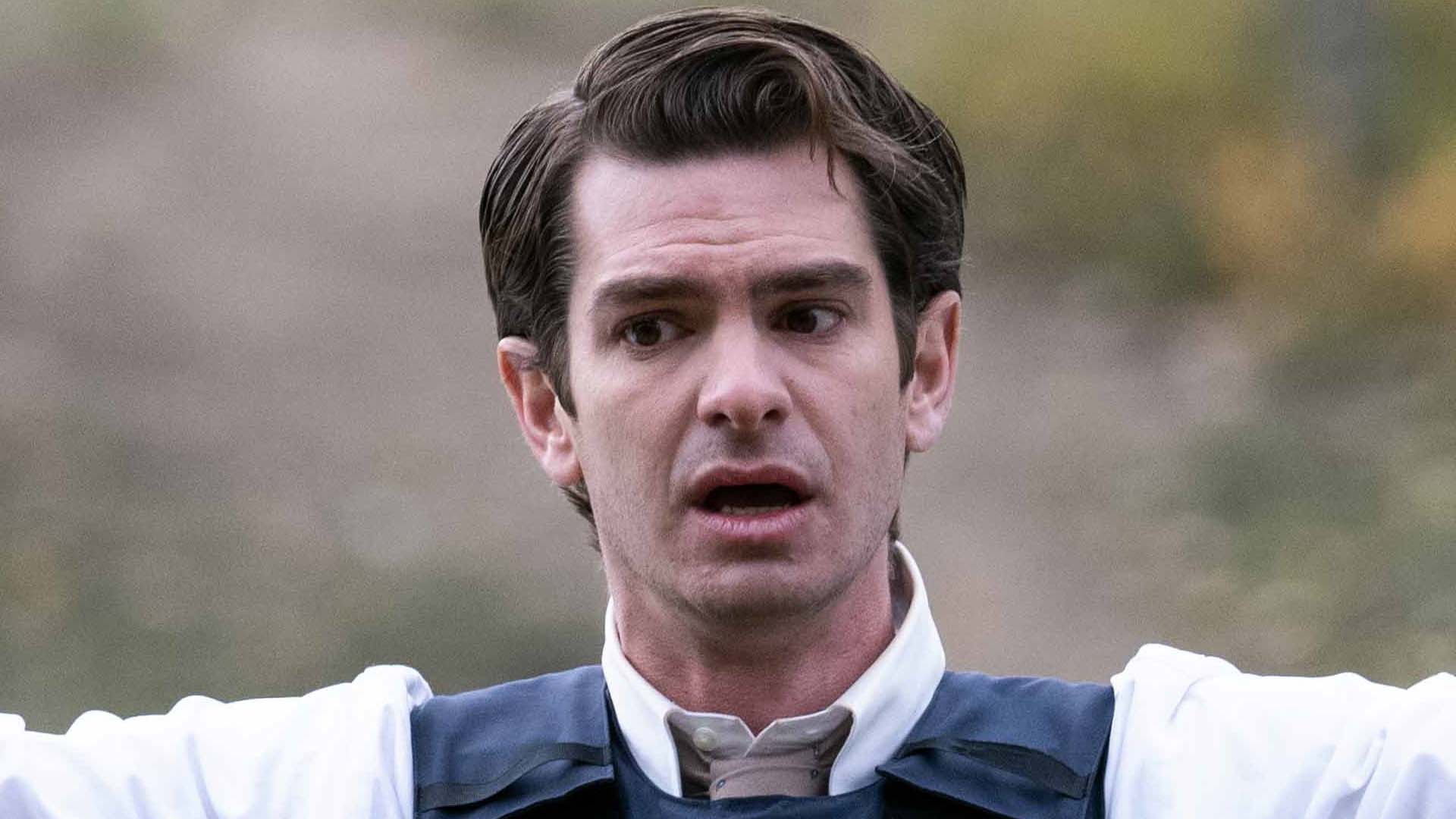
Andrew Garfield stars in true crime drama Under the Banner of Heaven, investigating the murder of wife, mother (and Mormon) Brenda Lafferty. Deeply compelling and incredibly immersive, this is a surprisingly complex critique of enshrined traditions, writes Katie Parker.
Based on Jon Krakauer’s nonfiction bestseller of the same name, Under the Banner of Heaven tells the sad, true story of the Laffertys—a well respected Utah family and devout members of the Church of Jesus Christ of Latter-day Saints—who found themselves at the centre of a murder investigation when daughter-in-law Brenda Lafferty (Daisy Edgar-Jones) and her baby daughter Erica were brutally slaughtered in their home in 1984.
It was a shocking crime, and even more so for the tight-knit, ostensibly peaceful Mormon community in which it occurred—yet, as Under the Banner of Heaven carefully (and somewhat audaciously) suggests, it was exactly this environment and this community that allowed the seeds of evil to grow.
Set across three timelines, in the first we see Brenda’s life and relationship with the Laffertys in the time before her death. Marrying Allen Lafferty (Billy Howle), one of six brothers, Brenda is bright, vivacious and a little less churchy than her in-laws and their sweet but submissive wives.
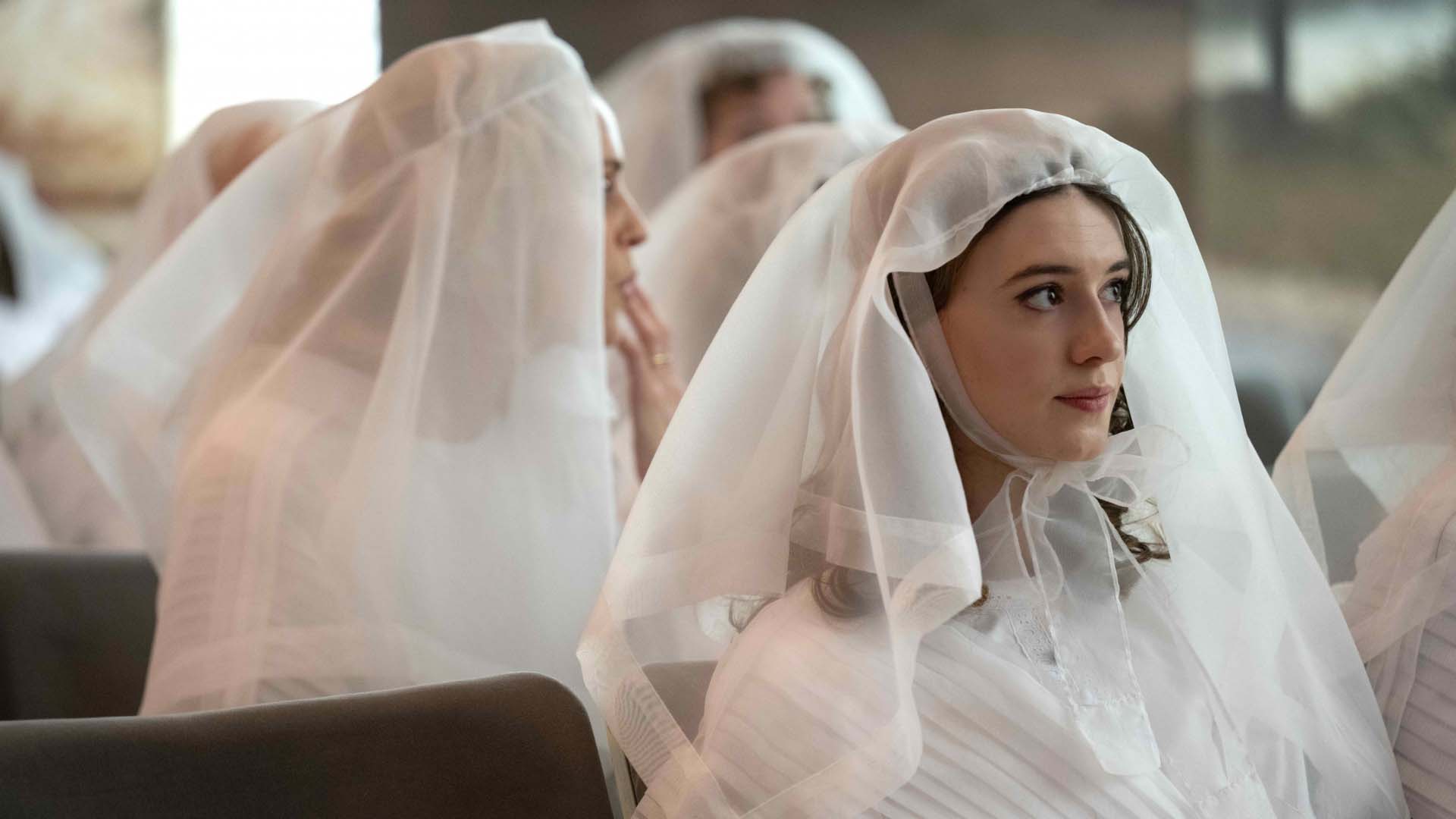
A recent college grad, she dreams of a career in journalism—something that Allen puts the kibosh on soon after the wedding. In the world of Utah Mormons, she finds, the woman’s place is in the home. Nevertheless, she makes the most of her situation, befriending her sisters-in-law and trying her best to fit in with a family who makes clear their disdain for her independence. That is, until the Lafferty brothers, led by eldest sons Ron (Sam Worthington) and Dan (Wyatt Russell), take an interest in a more traditional, fundamentalist strand of Mormonism, and begin an all-consuming, manic obsession with polygamy, anti-government activism, and the chilling concept of “blood atonement”.
In 1984, meanwhile, devout LDS member and detective Jeb Pyre (an excellent Andrew Garfield), alongside Native American (and atheist) detective Bill Taba (Gil Birmingham), is called upon to investigate the grisly crime scene where Brenda and Erica were discovered, and goes about the difficult task of investigating his own community.
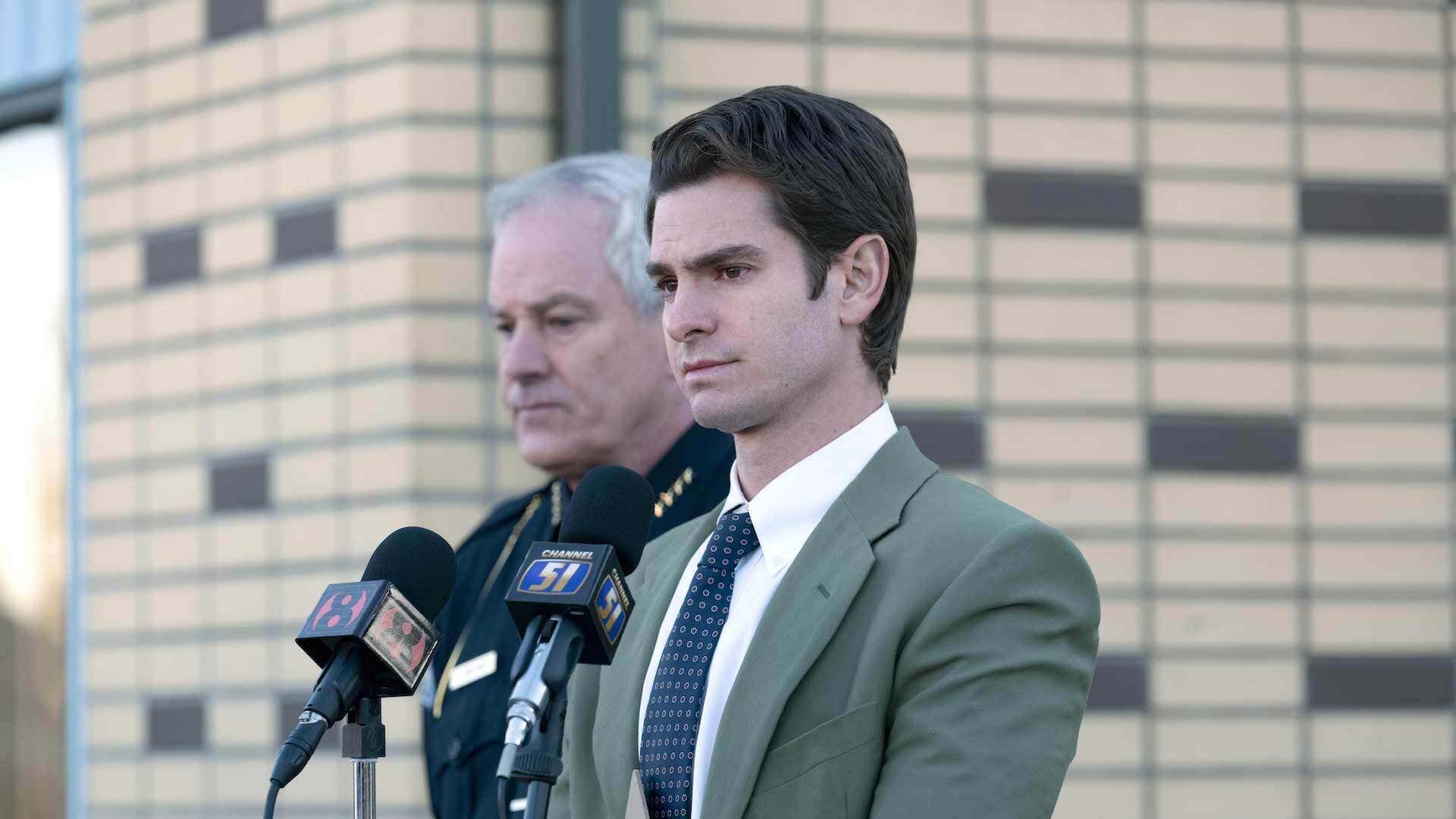
Gradually understanding the true extent of the Laffertys’ radicalisation, Jeb’s entire belief system is rocked—which brings us to the third, and initially the most puzzling of Banner’s narrative threads, in which Joseph Smith himself lays down the foundations for the Mormon Church as we know it today.
While at first whatever went on in covered wagon times might seem a little beside the point, this historical background (and the parallels drawn between what happened then and what is happening now) becomes integral to understanding the show’s surprisingly complex, deeply considered critique of enshrined traditions.
As true crime drama goes, it seems that all too often we award favour for what we imagine to be verisimilitude. Who amongst us, after all, does not immediately go online after finishing any true crime media to discover whether it all really went down the way we were told? Bonus points if the actors look anything like the real-life people they were cast to play, and bonus bonus points if some of them are still around to appear in a ‘where are they now’ Buzzfeed article.
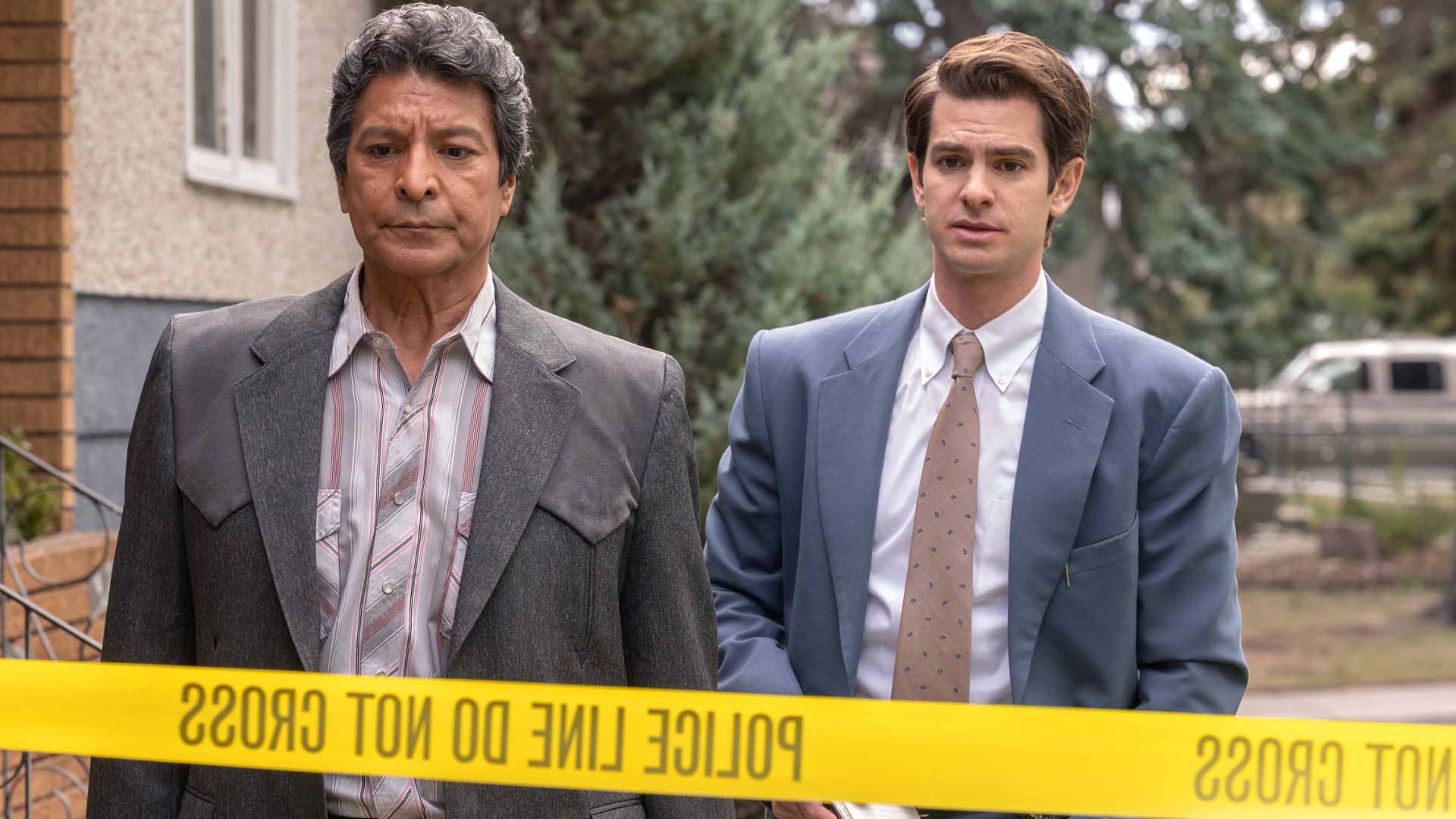
While few ever quite win the gold star for realism, Under the Banner of Heaven takes a surprising number of liberties with its source material. The most significant of these being that the noble but flawed Jeb Pyre, as well the wise, clear-headed Taba, never actually existed at all and are fictional creations of showrunner Dustin Lance Black (Milk).
To true crime purists this may seem like sacrilege to the extreme—yet Under the Banner of Heaven could hardly be accused of playing slap-dash with its source material.
In fact, Black (who is a former member of the LDS church and who was the only writer of Mormon experience in the writer’s room for Big Love), spent more than a decade researching the story—conducting numerous interviews with key figures in the case including family members, friends and those found responsible for the murders themselves.
Yes, Pyre forms a kind of narrative framing device as well as the show’s emotional and thematic centre, but Black’s show is nuanced and thoughtful enough to use his invention for a purpose greater than just keeping the story moving. Under the Banner of Heaven may fall under the genre of true crime, but it is no whodunnit. The killers may be obscure but the culprit is clear: misogyny.
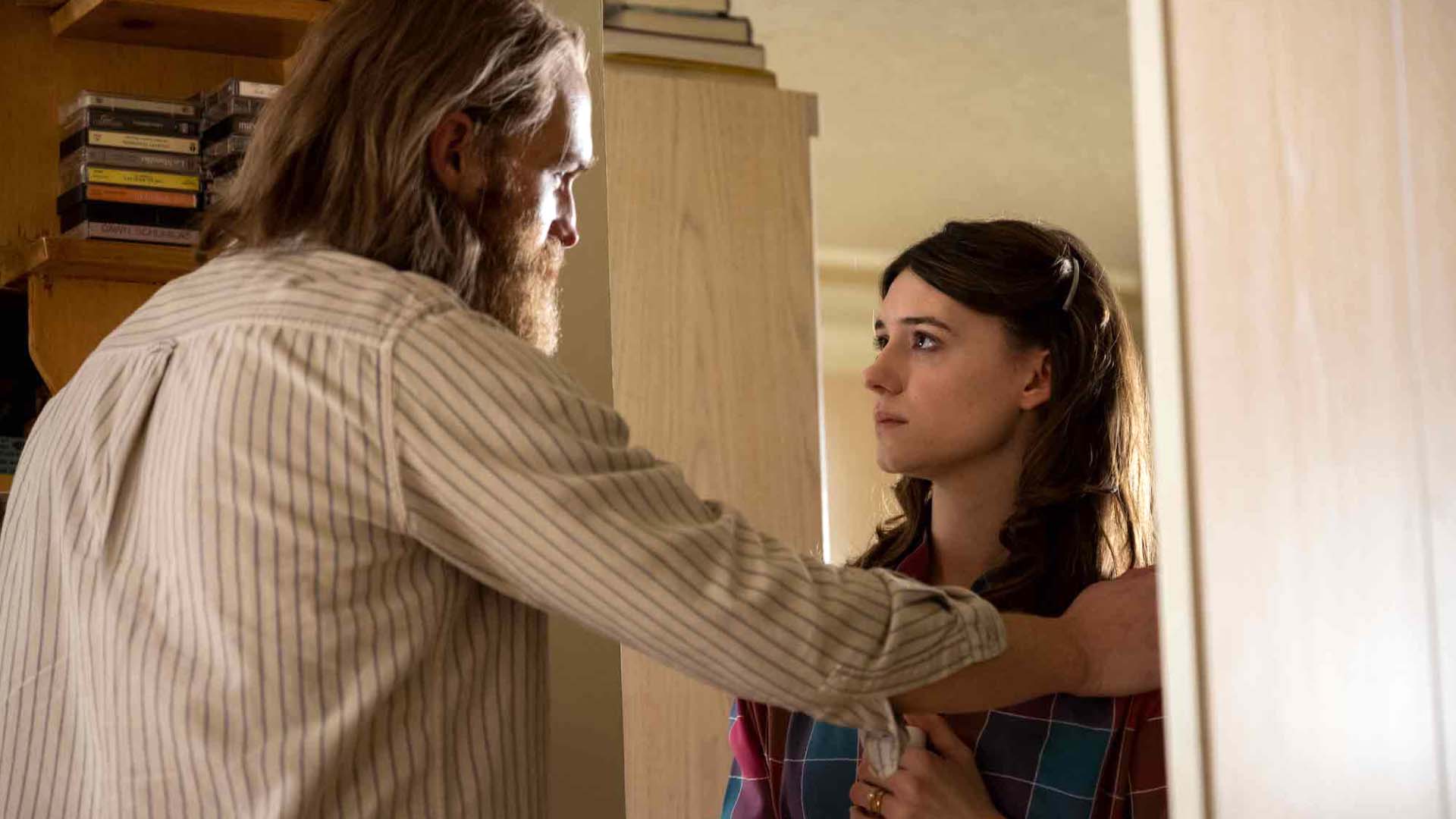
Pyre is kind, loving and thoughtful but, crucially, even he is complicit in the structures of power erected within the church to ensure that their supposedly natural way of life—women at home, having babies, obedient to their ‘priesthood holder’ husband—will never erode.
His path, though fictionalised, is integral to Black’s account of how something so benign can become malignant before our very eyes. As Pyre is forced to confront his own beliefs, so too is the show able to crystallise its critique of not only those directly involved, but of an entire community of people who allowed it to happen. Violence against women here is far from aberrant, but symptomatic of something that is ingrained in ways we can hardly imagine.

It’s a different way of doing true crime for sure—and paradoxically perhaps more honest than those purporting to tell real-life stories exactly as they happened. Rather than point the finger at one or two monsters who may be living, unseen, amongst us, Under the Banner of Heaven posits an even more chilling scenario—that the monster may be perfectly visible, may be known to all, and yet no one is willing to do a thing about it.
Scathing yet surprisingly nuanced in its critique, Under the Banner of Heaven is also deeply compelling and incredibly immersive. While the subject matter may seem prohibitively specific, it is surprisingly universal and even timely in its takedown of a social structure that demands women accept their status as property.
As the US seeks to overturn abortion rights en masse and horrific televised celebrity trials gleefully put imperfect abuse victims back in their place, perhaps archaic religious structures aren’t the only places where misogyny is enshrined. Perhaps, like Jeb Pyre, it’s something we are still yet to really confront.



















